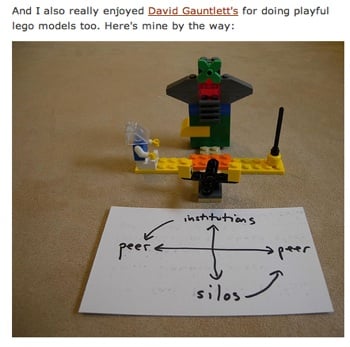This article is more than 1 year old
Digital Britain: The Emperor has no signal
Broadband has failed because of our slack-jawed elites
Twittering the Untwitterable
There's an unwritten rule here at El Reg, which is that technology needs to be much, much better. That's why we make merry with the bad stuff - it doesn't deserve to be peddled. If we raise our ambitions and think of what our technology could and should be able to do, it's a long way from where we are now. For example, we should be guaranteed that our digital photos will be preserved and accessible in fifty years time. There's no reason we should not be able to visit {insert your favourite ethnic cuisine here} and take away the songs you've been hearing on your phone or iPod. Legally. And financial transactions should be secure, and not require additional dongles or gadgets. These are hard technical problems solved by systems engineers, not by web monkeys.
But policy makers and the media don't quite see it like that. In place of ambition and optimism is slack-jawed wonder.
For the media, who view themselves as bleeding edge if they can hop from one social media fad to another, and who regard Gladwell vs Anderson as a clash of giant intellects, this is profoundly difficult to deal with. It's not just a minor ecumenical matter (eg, "which social network will win?") but a major theological issue, such as positing to them that Jehovah is a hologram, or Darwin doesn't explain evolution. It's on that scale. It's so huge, they just can't comprehend it.
It's the same with politicians, and the bureaucrats and quangos who attach themselves to policy-making. They wring their hands over the "digital divide", which becomes an excuse to tax us twice: once for building out the networks, and again for the public awareness or "education" campaigns. Post Carter, there are many people eyeing the prospect of consultancy opportunities offered by a multi-year "media literacy" initiative, with its assumption that people are stupid. No one has noticed that chapter in Carter yet.
As for the quangos, have a look at the level of intellectual debate inspired by the holidaying junketeers.
As James Harkin discovered with his excellent book on cybernetics and Web 2.0, anyone who tries to pitch the level of debate slightly higher than "I've got a dictionary. Look, it's a dictionary!" receives scorn. There are too many vested interests in keeping things dumb.
Alternatively, we can make the technology better - improving the networks we have - and the market will provide the investment.
I would argue we don't really have a choice other than to rethink networks from the ground up, based around things people actually want. The cost of business-as-usual, of providing rural broadband, and these "literacy campaigns" to brow-beat people into Twittering, or Wiki-fiddling as Model Digital Citizens is quite astronomical. If it doesn't come from the market, it will come from the taxpayer. Better networks will benefit us and future generations. Throwing good money after bad won't.®
Andrew warmly welcomes your comments.

